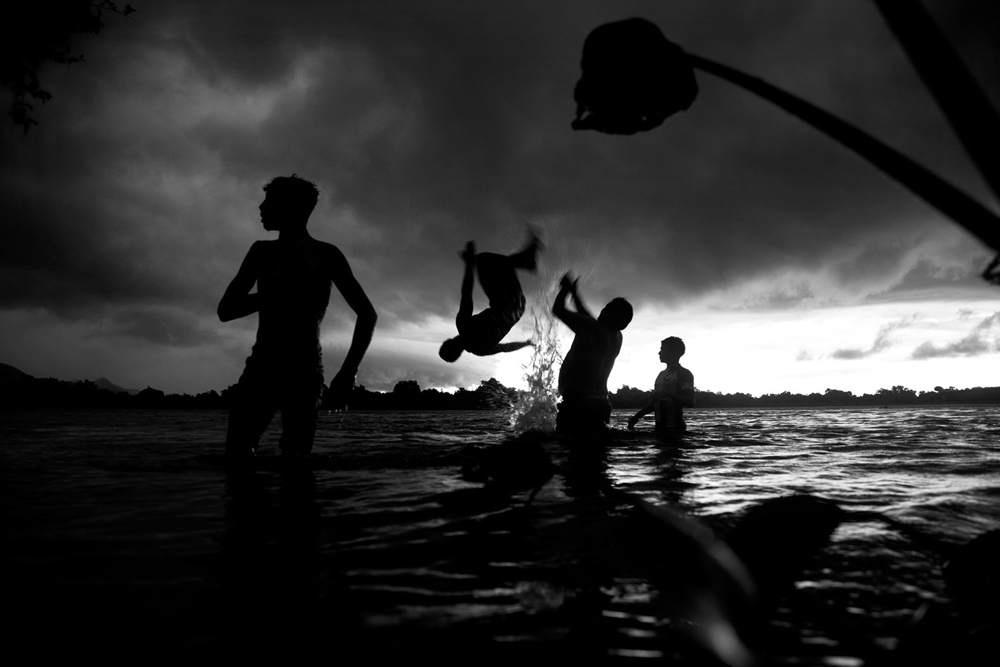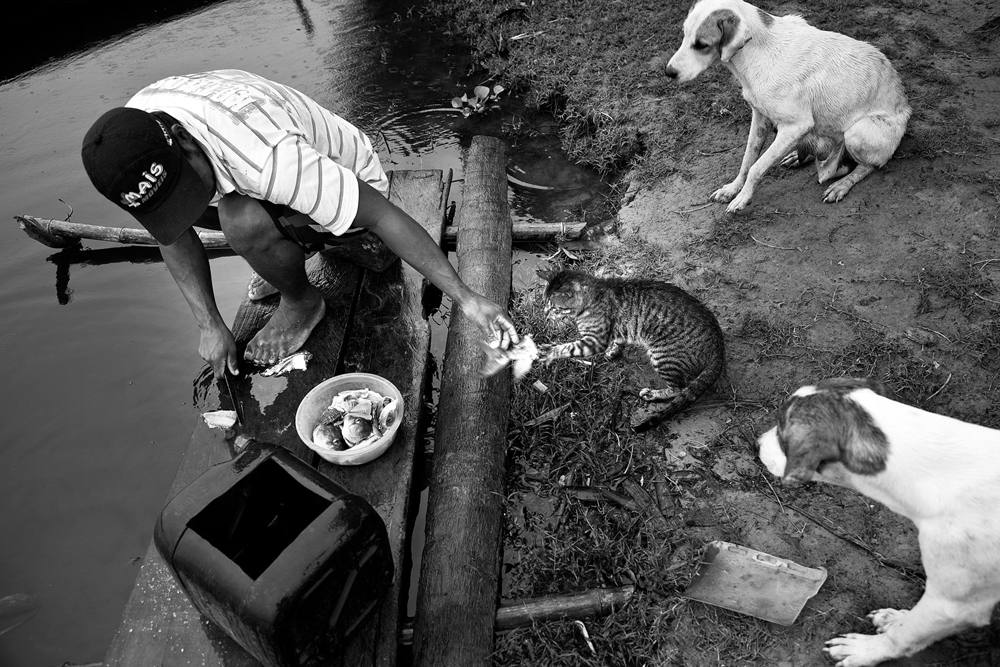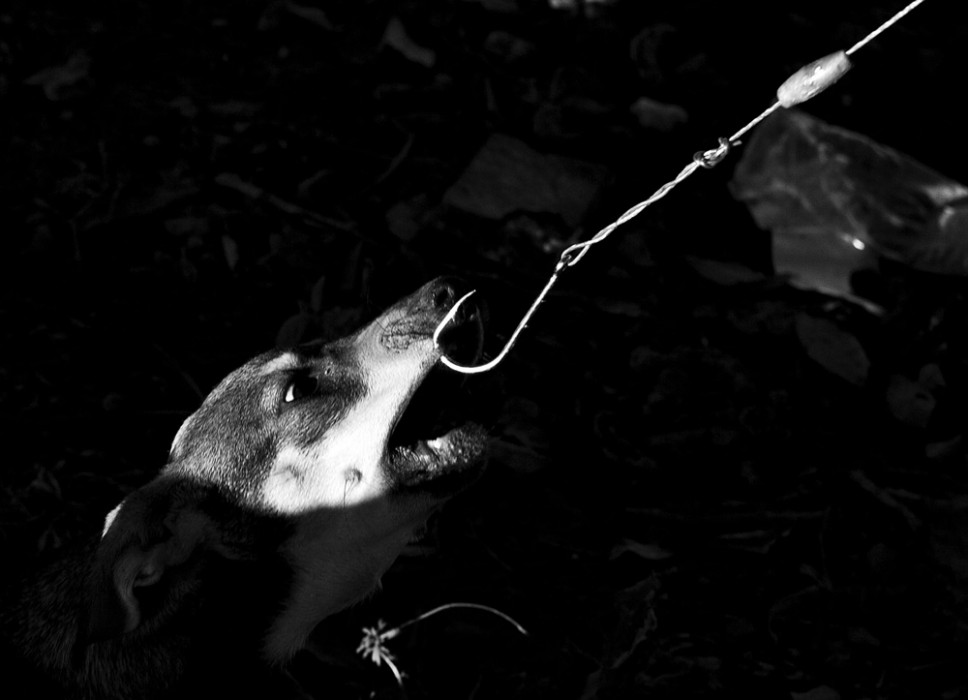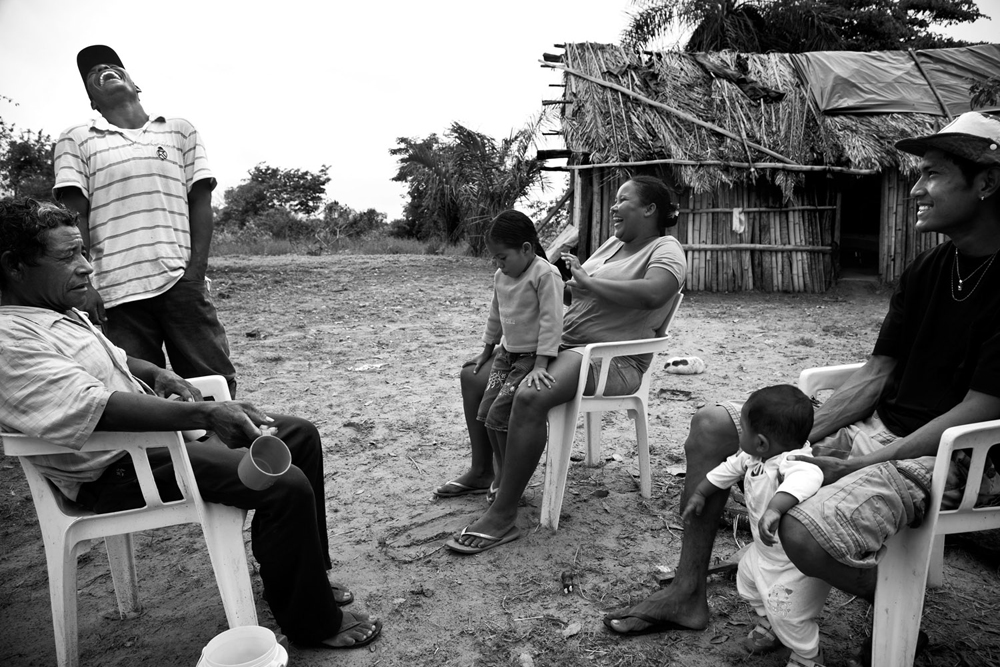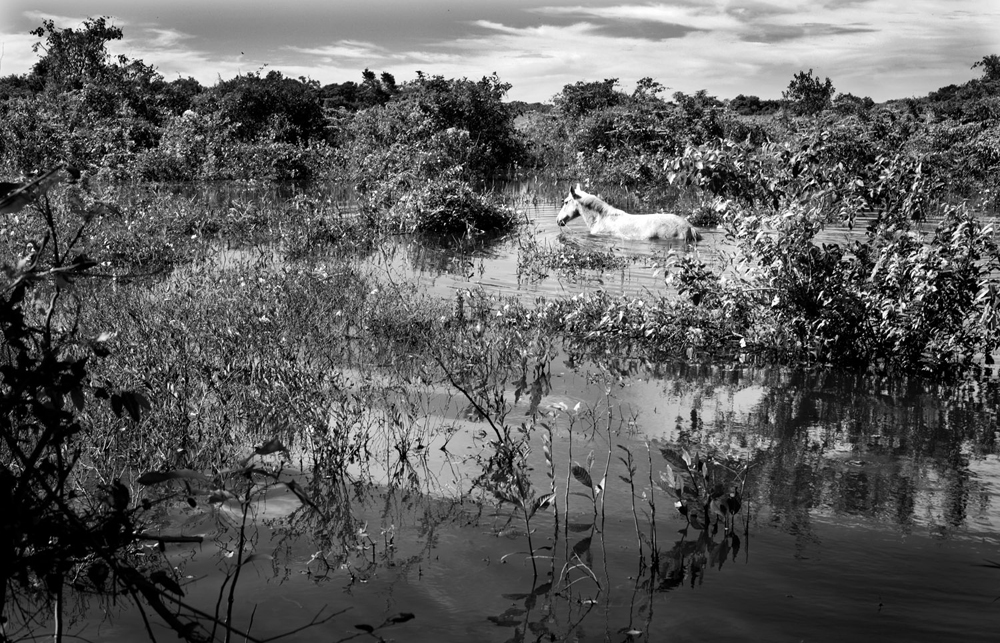People of the River
This project focuses on the lives of indigenous fishermen who have worked to remake their lives after being expelled from their homes and kicked off their land; sacrificed in the process of making of several private nature reserves and a federal national park in Pantanal, Brazil. People of the River captures the intimate, symbiotic and multifaceted relationship between the Brazilian Guató Indians and their environment in the largest wetlands in the world, Pantanal in Brazil. Pantanal is roughly 10 times the size of Florida’s Everglades. The Guató have traditionally been a nomadic tribe. They have used hand-made canoes to fish and travel along the rivers, lakes and wetlands of Pantanal. In the past and still today, the Guató do not strive to change, control or triumph over nature. Rather, they have worked within a given landscape to sustain their families and to adapt to the surrounding environment. They have inhabited the area for centuries, and while far fewer in numbers, around 400 people in this tribe still exist and continue with their traditions today. This project focuses on families of indigenous fishermen who were expelled from their houses during the creation of several private nature reserves and a federal national park in Pantanal in 1990s. Despite the fact that these local fishermen have a long historical relationship with the land, and have been an important part of the local ecology, they are now forbidden to enter and fish in many of these new parks. This project raises questions about the way we “preserve nature” by separating man from the land and gives voice to the Guató who struggle to maintain their culture and livelihoods which is intimately tied up with this land and nature.
